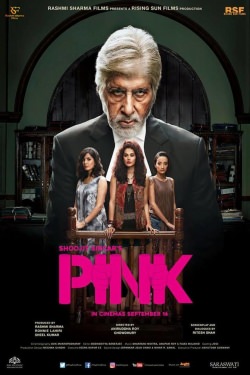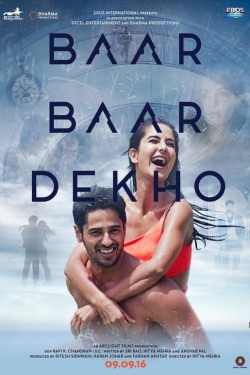Top Rated Films
Nandini Ramnath's Film Reviews
-
A.R. Murugadoss’ entertainer displays greater fidelity to its source than did his Ghajini reboot, down to the bloated running length of 170 minutes. The situations are the same, the dialogue is translated verbatim and the heroine hasn’t yet grown a brain, but the Hindi version misses out on the charisma of its leading man. Holiday’s Akshay Kumar is a poor match for Tamil superstar Vijay, who has built a career out of supplanting average acting skills with practised insouciance.
-
More comfortable with action than words (the dubbed English version, done in India, is another source of unintentional mirth), he focuses his energies on delivering the daddy of all action spectacles. Would anybody else dare to come close to his achievements—or would anybody else bother? Once is quite enough.
-
The reboot’s real interest is in conjuring up a tender relationship between a fairy, a princess and a crow, with enough twists to save a well-worn fairy tale from the curse of overuse.
-
Kuku Mathur Ki Jhand Ho Gayi has many rough edges, patches of amateurish staging and acting, misguided attempts at humour, and an ear-splitting and disposable Amar Mohile background score, but it is also good-natured, warm-hearted, and finely observed. Its characters seem right at home in the Subhash Nagar, west Delhi, location in which the movie plays out.
-
Mutant maniacs might just enjoy the significance of such knowing lines as “It’s good to see everyone” and “You and I have a lot of catching up to do”. Mutant agonistics might just feel like uninvited guests.
-
Several leading men before Shroff have boosted their careers by building up body mass and appearing in movies with plots as profound as a gym manual, but they were fortunate enough to have a smart screenplay, crackling dialogue writers and a popular soundtrack. All of the above are absent in Heropanti, resulting in a 146-minute tour of incompetence.
-
Strikingly shot by Seamus McGarvey to maximize the movie’s Imax potential (it’s hard to imagine the scale and depth of the gritty visuals on anything smaller), Godzilla demands, and often achieves, a sense of awe.
-
The Xposé’s cheerfully chintzy look and feel, the lack of interest in period detail, the wispy plot, and endless shots of a pensive Reshammiya walking down a Paris avenue, gazing moony-eyed at Zara’s rival Chandni (Afroz), dominating the shooting of an under-production movie, and yanking every other character’s strings this way and that add up to an ambitious vanity project that holds appeal only to other members of the singer’s treasure hunt. Full marks for trying, but none for refusing to give up.
-
There are only moments of the frisson that characterises humankind’s fascination with the verboten, conveyed more through Mastram’s language than the visuals of open-mouthed women waiting to spill out of their clothes at the slightest provocation.
-
For a movie whose conclusion is foregone, whose treatment is literal-minded, and whose message is sloppily assembled and delivered, Varma does throw up some surprises. He effectively captures the ordinariness of the milieu that produces Manjunath, and extracts solid performances from his cast. However, the director is less sure-footed about the larger issues thrown up by Manjunath’s death.

























